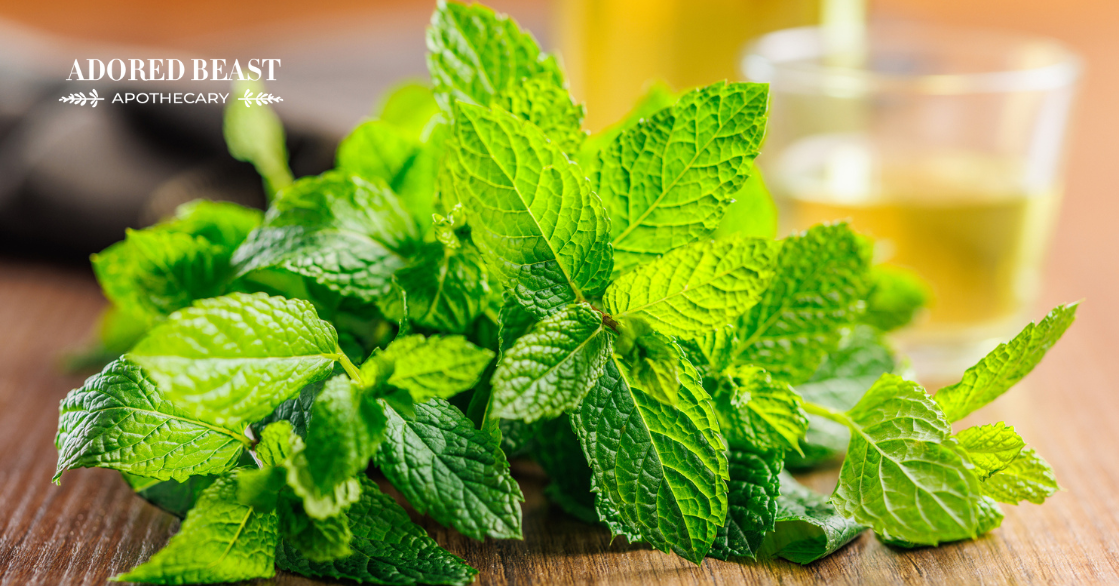The exact timing of flu season can vary, but according to the Centers for Disease Control and Prevention, in North America, flu activity usually starts to pick up in October.
Great. Cue the stuffy nose and persistent cough.
But as we prepare ourselves to face the onslaught of cold and flu symptoms – and hopefully avoid them entirely – should we also be worried about our dogs?
Is the dog flu a real thing? If so, how common is it, and is there anything we can do to help prepare our canine companions?
Is the Dog Flu a Real Thing?
Yes, the dog flu, also known as canine influenza, is a real thing.
There are actually two different types: H3N8 and H3N2.
H3N8 originated in horses, then spread to dogs. It’s been around for more than 40 years in horses, but the first reported cases in dogs were seen in 2004, when cases of an unknown respiratory illness in greyhounds were reported in the United States. Investigations found that this was actually the equine influenza A(H3N8) virus, which had jumped species. It has since adapted to spread among dogs, especially those housed in kennels and shelters.
H3N2 originated in birds, then, like H3N8, spread to dogs. It was first detected in dogs in South Korea, but then spread out from there. The first case in the US was in 2015.
With both cases, the symptoms are similar to what we experience:
- cough
- runny nose
- fever
- lethargy
- reduced appetite
Ok, so it’s real. But is it common?
Thankfully, no. The dog flu is uncommon, and many dogs will never come in contact with it in their lifetime. That said, it is highly contagious, and is more likely to be seen in certain areas (dog parks, kennels, daycares) where it can easily spread.
Additionally, even those who are exposed to it and develop symptoms usually fully recover in 1-3 weeks. Few animals will experience severe symptoms, and usually only if they have an underlying condition. Speak to your trusted veterinarian if you have any concerns at all.
Still, knowing it’s out there (as well as plenty of other viruses) is enough to make us want to make sure our dogs’ immune systems are in tip-top shape!
Don’t worry – even if your dog gets the flu, they won’t pass it to you. To date, there is no evidence canine influenza spreading from dogs to people and there has not been a single reported case of human infection with a canine influenza virus worldwide.
Prepping the Immune System for Flu Season
The best medicine for the dog flu is prevention!
Just like us, when our animals’ immune systems are strong. They’re better equipped to defend against any invaders. And that include the flu virus.
Immune Supportive Supplements
It’s very easy to add variety of supplements to the rotation for winter immune support for pets.
- Medicinal mushrooms – turkey tail, chaga, reishi, mitake – these are all immune modulating mushrooms, meaning they help to regulate the immune system. They enhance the immune system by supporting the body’s cells, helping create a resistance to viruses. The triterpenes stimulate the immune system, produce macrophages and help regulate productive immune cells.
- Pre and probiotics – you had to know this would be on the list! If as much as 80% of the immune system is in the gut, it only makes sense to support the gut! Add some pre and probiotic foods to your animals bowl, or find a supplement that contains both. If you feed probiotics regularly, consider rotating through different quality supplements (for example, switch from Love Bugs to Fido’s Flora to Gut Soothe…).
- Omega 3s – omega 3 fatty acids can help support the immune system by strengthening the cell walls, including the membranes of the immune cells. This includes a type of white blood cell called a macrophage, which plays a key role in eliminating pathogens from the body. They can also support the skin, which can become dry over the winter months.
- Antioxidants – antioxidants destroy free radicals that can build up in the body, thereby protecting the structural integrity of cells and tissues. This can significantly improve certain immune responses. They also defend against oxidative stress, which is like rusting in the body. It’s sort of like car rusting. And that’s not good. Our go-to is Phyto Synergy. It has high, high levels of Superoxide Dismutase – the King of Antioxidants!
2. Helpful Herbs
For herbs, we turn to our good friend, Canine Herbalist Rita Hogan. Herbs are the ideal go-to for winter immune support for pets. These herbs are all incredibly valuable when it comes to proactively protecting immunity.
- Andrographis – an anti-viral acting against many strains of influenza and other viruses. Native to India, andrographis is also antibacterial and anti-parasitic. It strengthens the immune system and protects the heart or cardiac system.
- Astragalus – a warming root that helps support and simulate the immune system by flushing metabolic waste through the kidneys. Astragalus increases antibodies, white blood cells, T-cells, NK cells, immunoglobulin and macrophages. It can help the body fight viruses, but is more beneficial when taken before getting ill.
- Boneset – a powerful antiviral herb that is ideal for coughing, lung ailments, and influenza. You can use it for treatment of influenza and assist in the prevention of influenza in small drop doses. Boneset helps balance out heat in the body including fever and heat in the respiratory system. Boneset is bitter, so you might want to mix it with some bone broth. You can also take capsules.
- Ashwagandha – supports the stress response and the immune system with its antioxidant activity. It has an effect on macrophages as an antiviral as well as increases white blood cells and antibodies. Ashwagandha is good in the recovery period of illness. (NOTE: avoid with hyperthyroid)
- Burdock root – helps the liver and digestive tract, which in turn helps boost the immune system as well as keep the systems of elimination open, which is important with any type of influenza.
- Calendula – an excellent lymphatic that warms the core, and it is also an immune tonic. It helps balance out cold, deficient conditions, helping maintain the fluid balance in the lymphatics. It helps with elimination, which is key with dealing with influenza and the immune system. Address lymph maintenance when trying to rid the body of the effects of viral flu.
- Echinacea – acts upon the immune system by helping decrease inflammation, move lymph, cool fluids, and increase white blood cell counts. Echinacea increases macrophage production as well as T-cell production. It is best used as a preventative like elderberry to help prime the immune system. To balance its cooling effects, combine with ginger.
- Olive Leaf – high in antioxidants and is an immune booster as well as an antiviral. It increases white blood cells and helps the immune system destroy viruses and bacteria. Olive leaf helps keep viruses from replicating.
For each of these, either find a product made for pets specifically and follow the directions, or work with an experienced herbalist.
3. Do a Gentle Detox
Fall, moving into winter, is a great time to consider a gentle body detox to help clear out the build up of toxins that may have occurred over the last few months.
Your pet’s body, like your own, is built to detox on the regular. Panting, urinating, and defecating are all ways that our dog’s bodies get rid of the toxins they take in. Much of this detoxification is done in 3 body systems: organs (liver and kidneys), the gut, and the skin. These systems help to filter out the “nasties” in the body, helping to clear the build-up.
The problem is, that build-up really builds up. If your pet’s toxic load (the harmful chemicals that accumulate in the body) is too much to handle, these systems are not going to be able to perform at their optimal level. And this can really affect the immune system.
A semi-annual organ cleanse can help support these organs in getting back to homeostasis and functioning as they should.
These are some of the best herbs for cleansing and detoxifying the liver and kidneys.
- Milk thistle works to stabilize liver cell membranes and acts as an antioxidant to protect liver cells from free radical damage.
- Powder: 100mg per 10 pounds of body weight, 1 to 4 times daily. Divide the dose equally if you give it more than once a day
- Tincture: 1 to 2 drop per 10 pounds of body weight, 1 to 4 times daily. Divide the dose equally if you give it more than once a day
*Don’t use this all the time unless your animal has a chronic liver disease (speak to your vet) – a few times a year is good. Also, don’t give to pregnant or lactating animals
- Parsley isn’t only good for flavouring your favourite dishes. It can freshen your dog’s breath and help support the kidneys. Its diuretic properties help it filter toxins through the body and out through urine. Chop up and add a few pinches of fresh parsley to your dog’s meals on a regular basis.
- Dandelion root supports bile secretion and healthy digestion, as well as healthy liver and kidney function. It also supports the removal of toxins from the body. With dried dandelion root, work up to 1 tsp per 20 lbs of weight. With dandelion root, be careful with pets on diuretics – speak with your vet first to make sure it’s the right fit for your pet.
PRO TIP: Adored Beast Liver Tonic contains the ideal detoxifying herbs!
4. Spend Some Time Outside
Get outdoors and breathe in the wild. Forests and nature have different molecules that help produce a healthy immune system like negative ions and photons. Exercise is also a great stress reliever. And the winter is the perfect time to do it! With the crisp, cold air flowing through our lungs, there’s nothing better! Go for a long winter hike through the woods and breathe deep.
Sunshine is also important when it is available. 20 minutes a day will do wonders for you and your animal. It actually helps the body produce anti-microbials when exposed to it. This is particularly important in the winter when many of us tend to get fewer hours outside.
How to Avoid the Spread
If you know there are dogs in your area who have the flu, keep your animal away from them, and away from areas they frequent. In the case of an outbreak near you, try to stay away from popular areas, and perhaps try one of those lesser known trails you’ve been wanting to visit.
If you think (or know) your dog has the flu, keep your baby home. Most dogs just need a little TLC at home and will recover in no time. We recommend not automatically heading to your vet – call first, so they can help prepare and help protect other dogs. If your dog needs to see your veterinarian, tell them of your suspicions over the phone. They can then arrange for your dog to enter and leave through a separate exit, so as not to pose a risk to other patients.
Wash all of your dog’s toys, bedding, food and water bowls, collars and leashes in hot, soapy water to help avoid the virus spreading!
Also, there are cases of it spreading to cats, so wash, wash, wash and ramp up your cat’s immune defences at the same time.
The dog flu is a real thing, and while uncommon, we do want to help protect our dogs from any exposure and make sure their immune systems are healthy. This season, just say no to the flu – we’re not interested!












